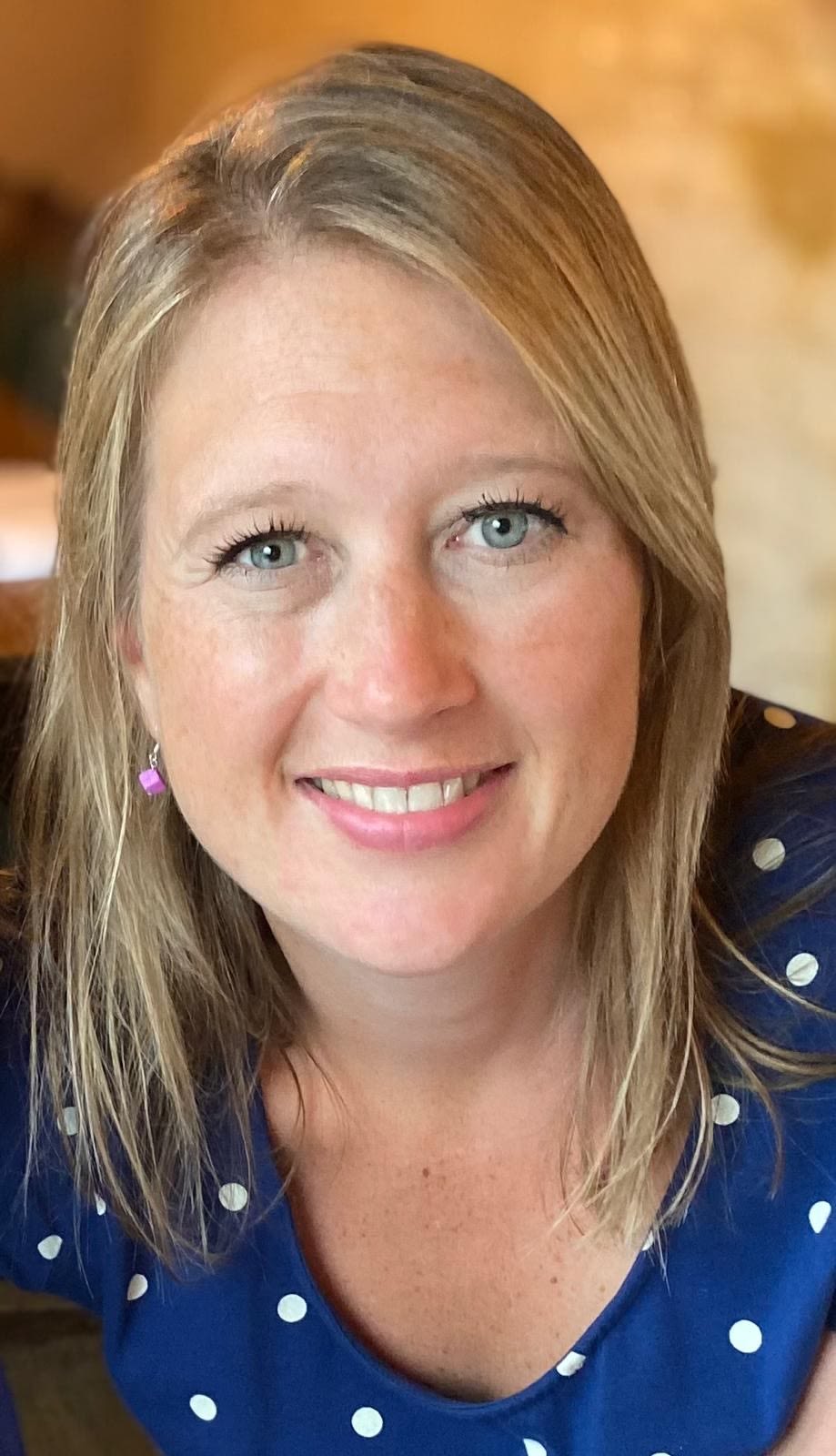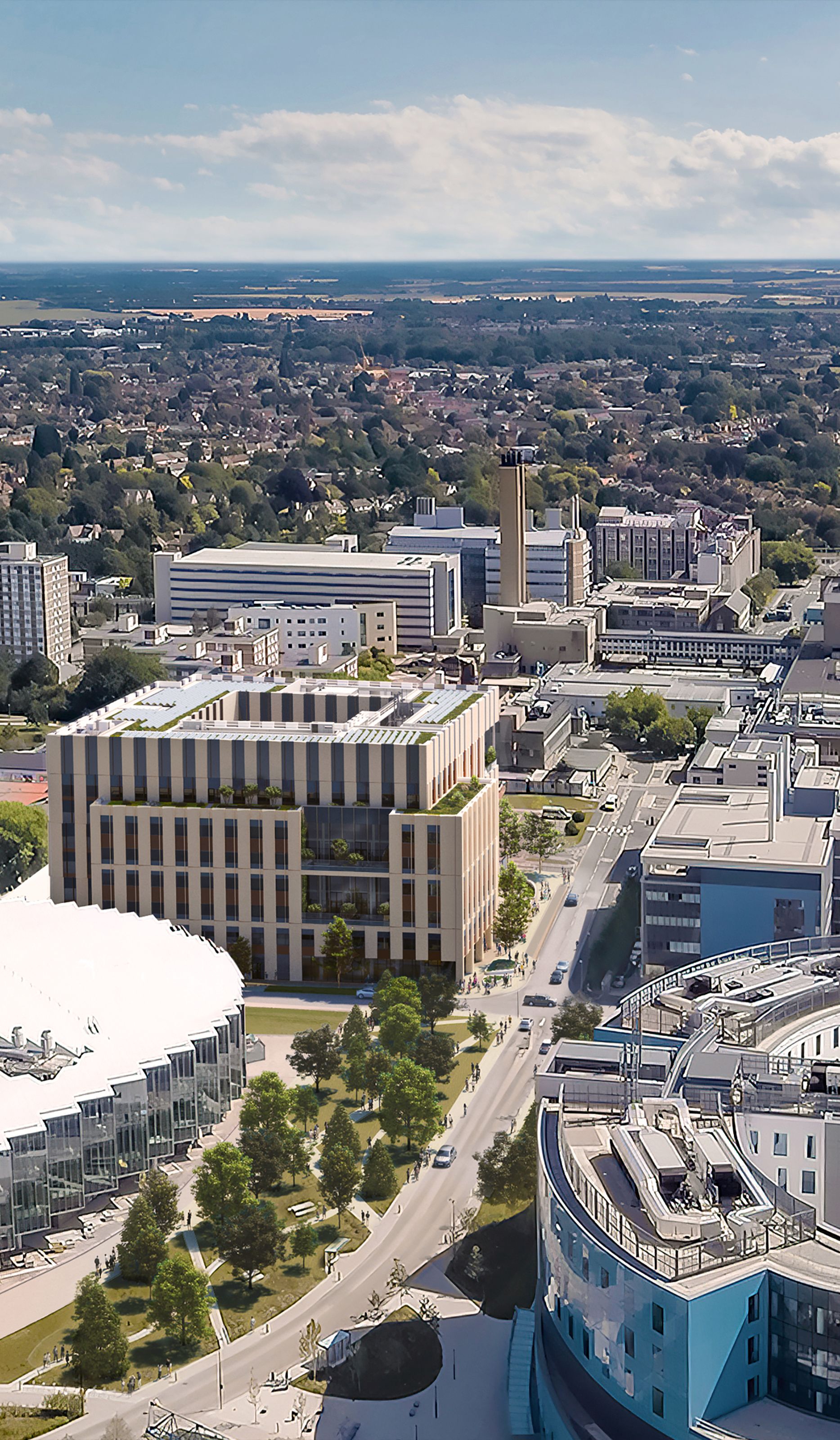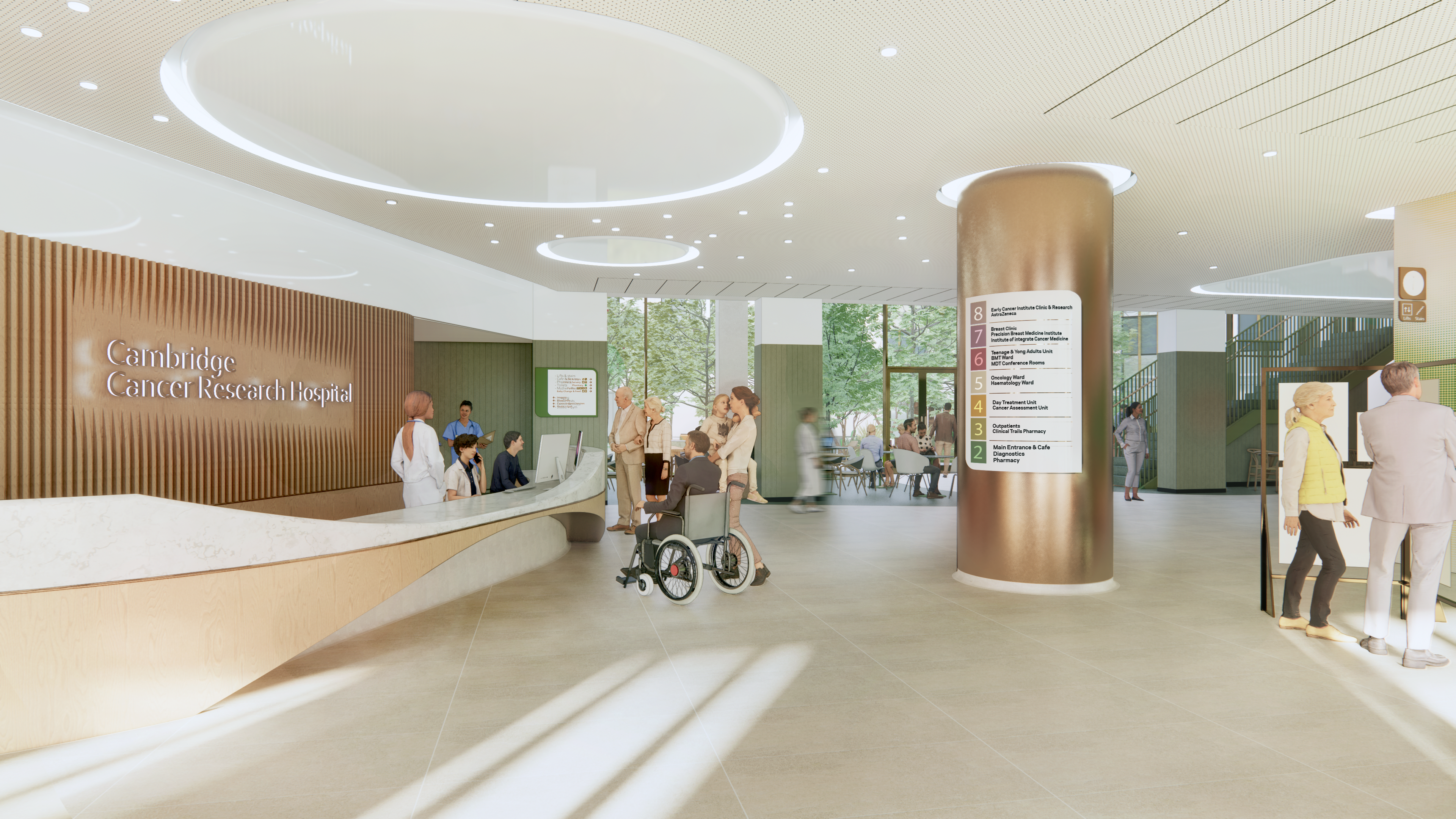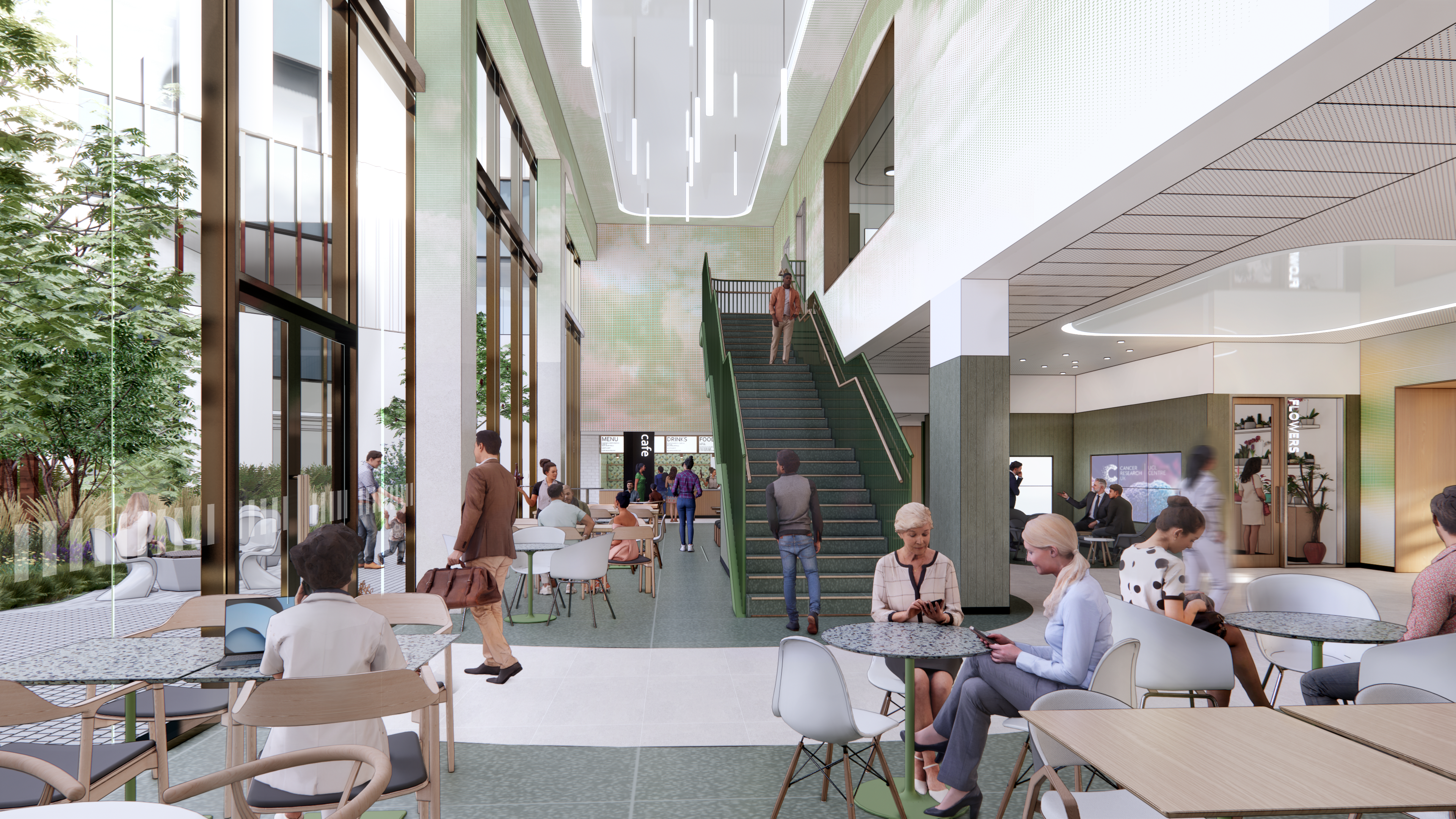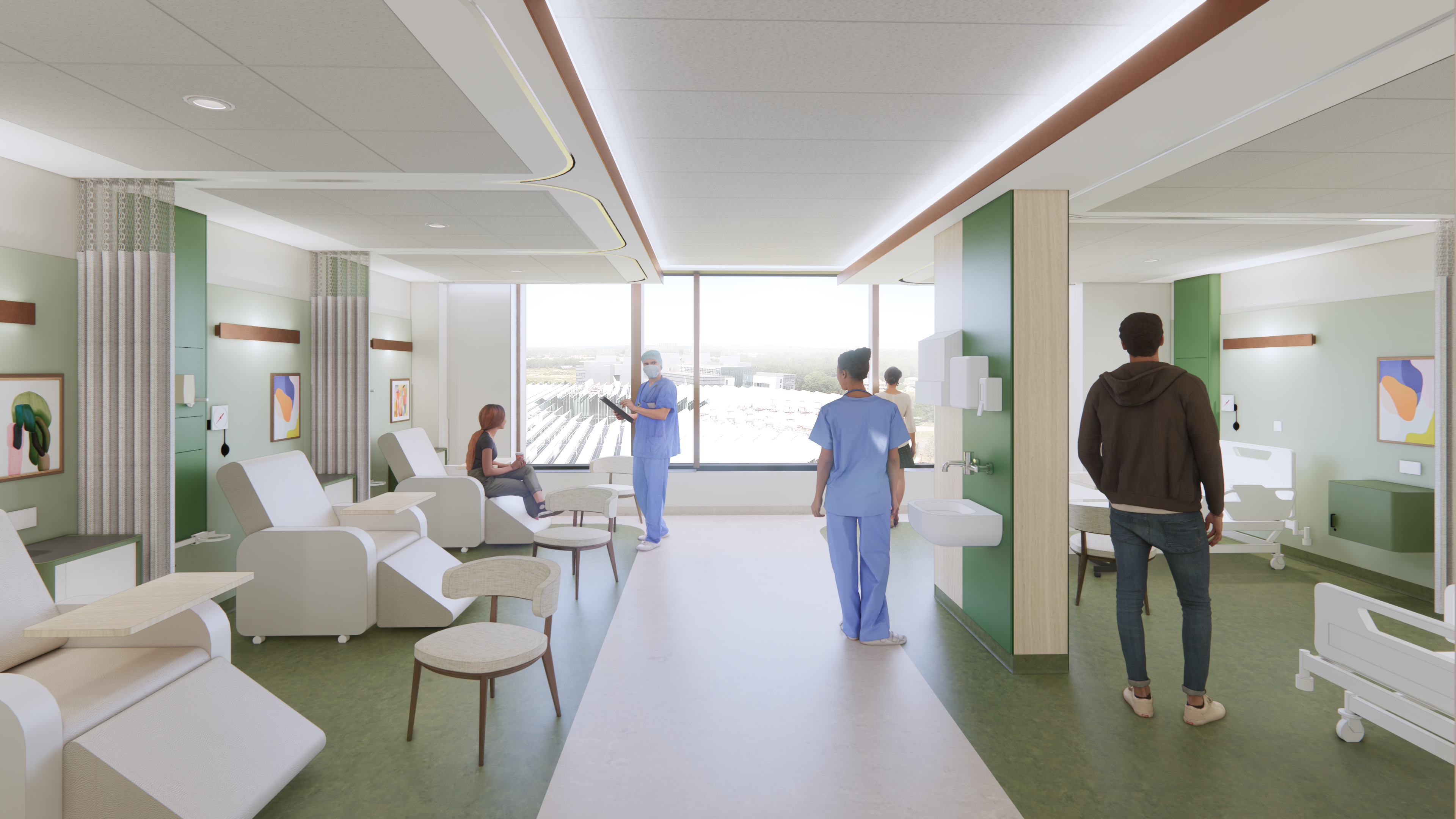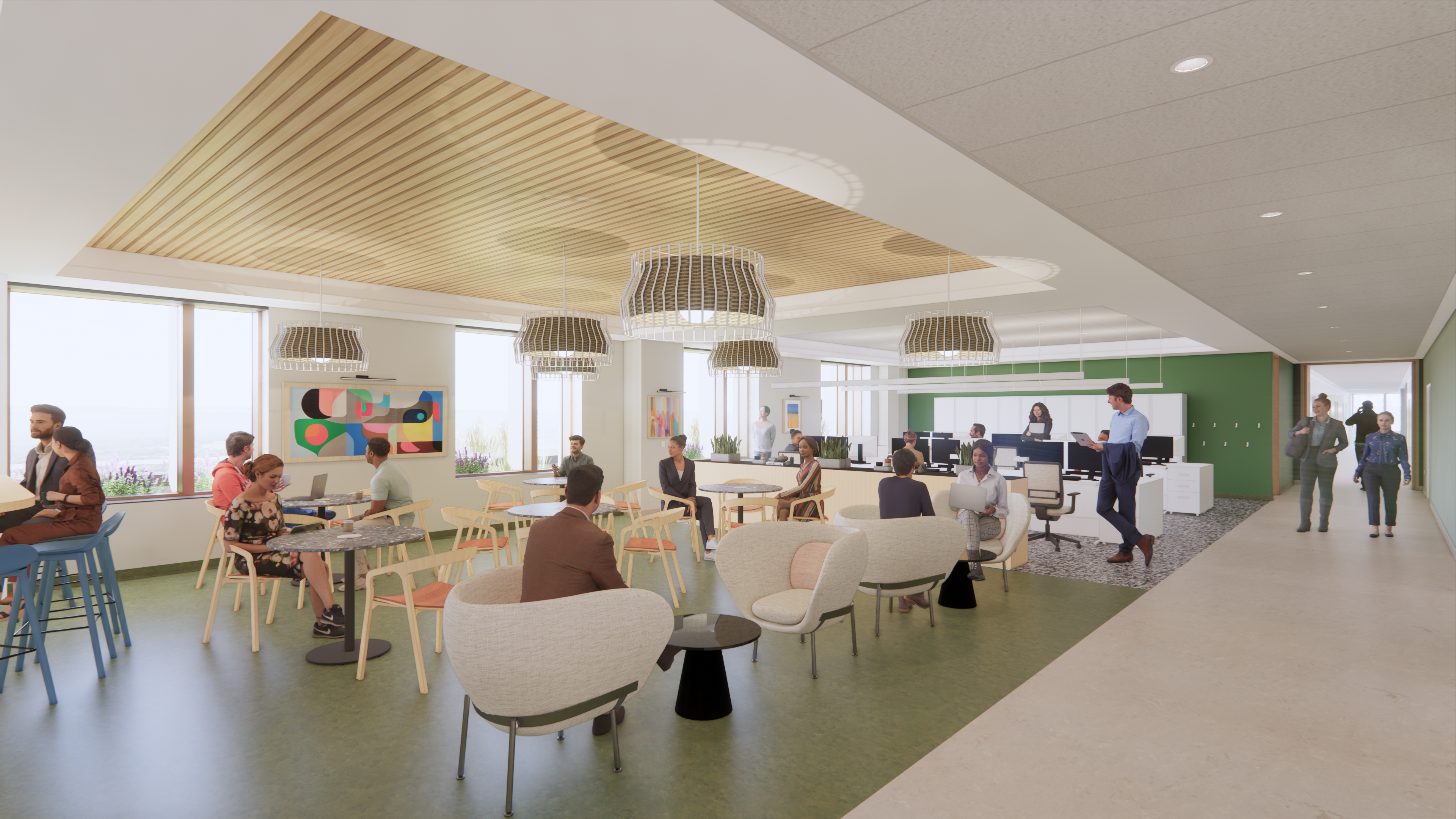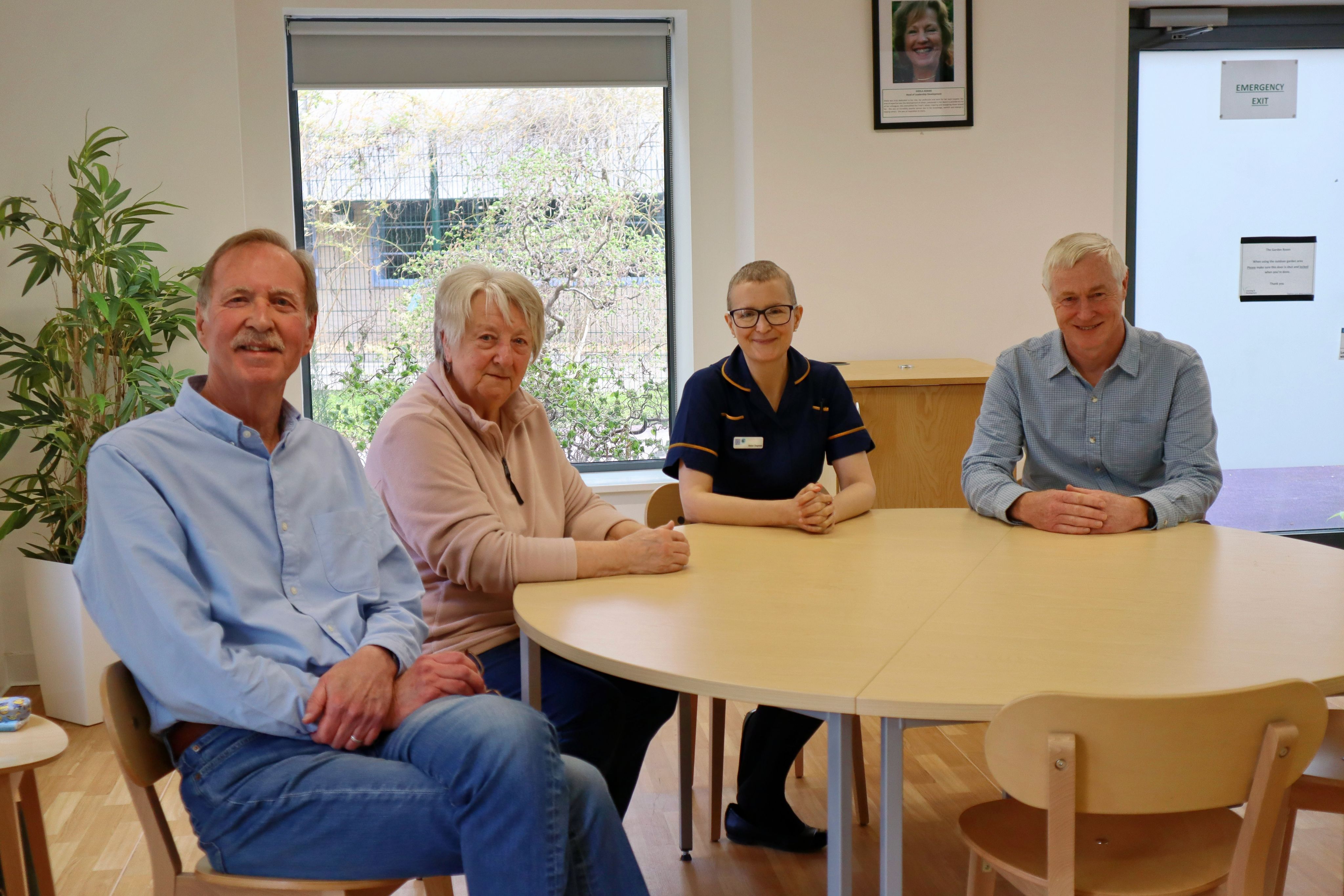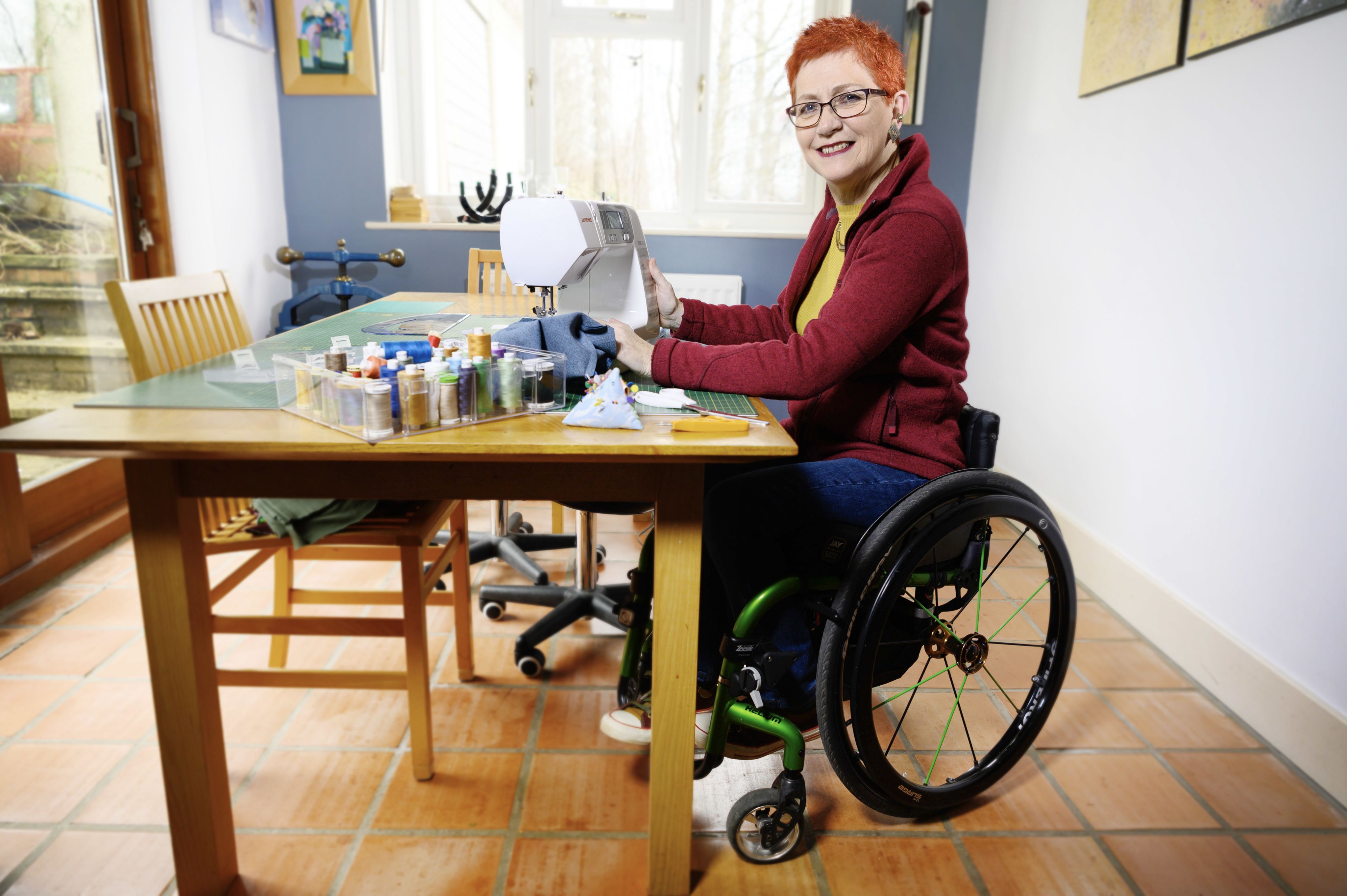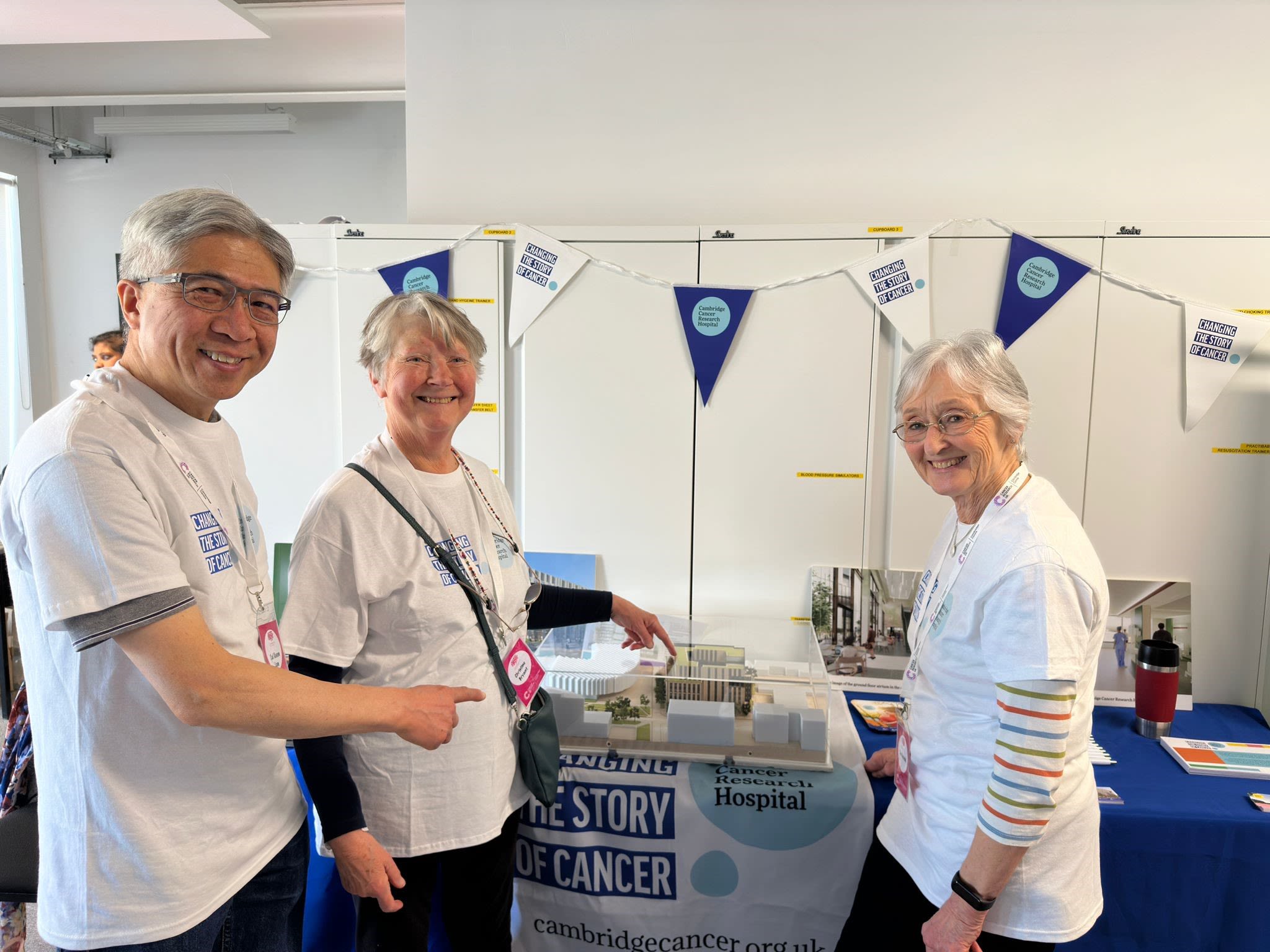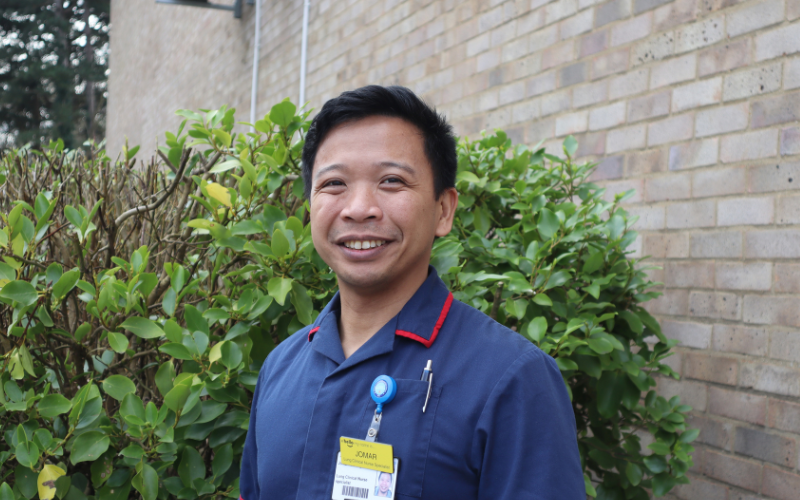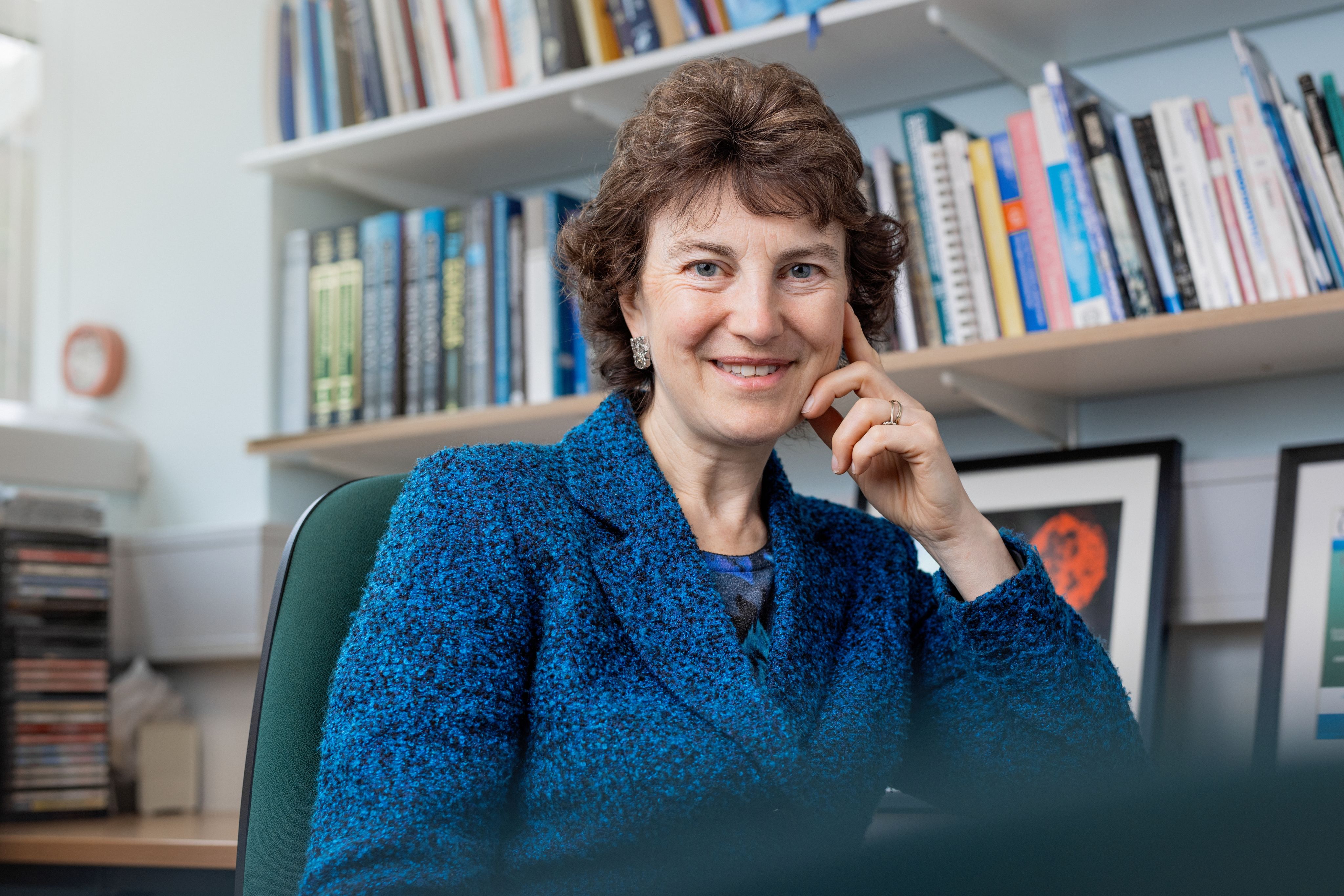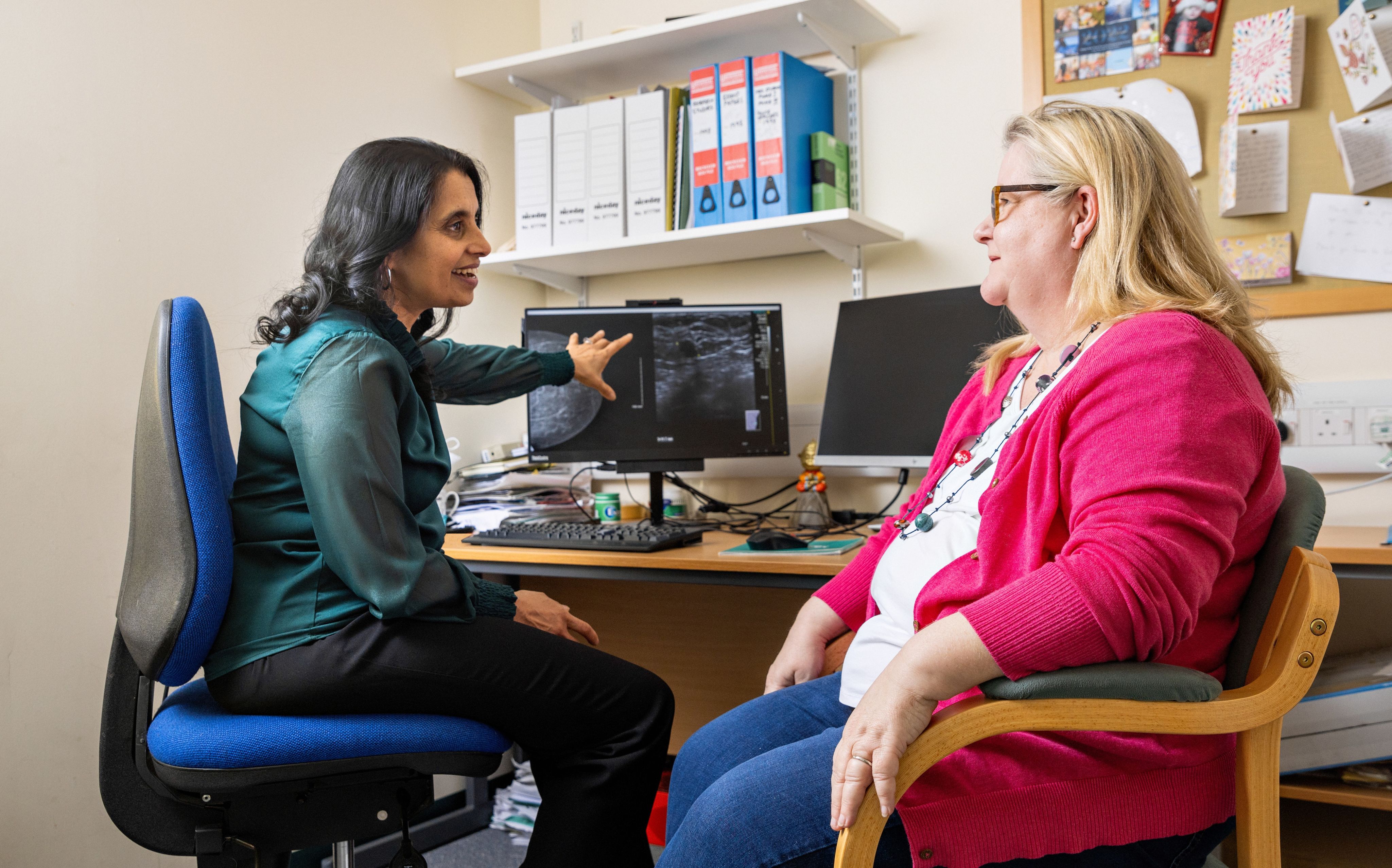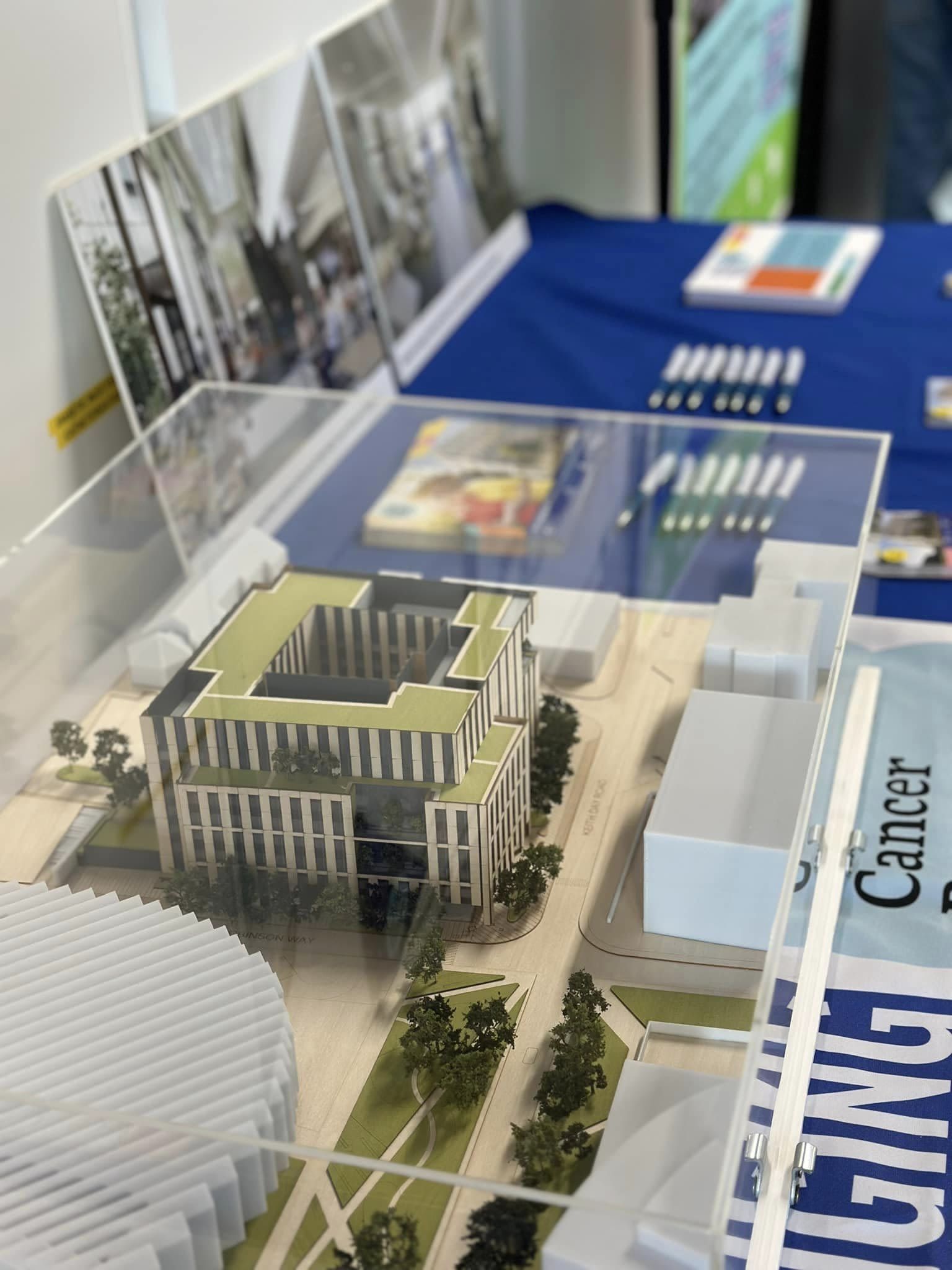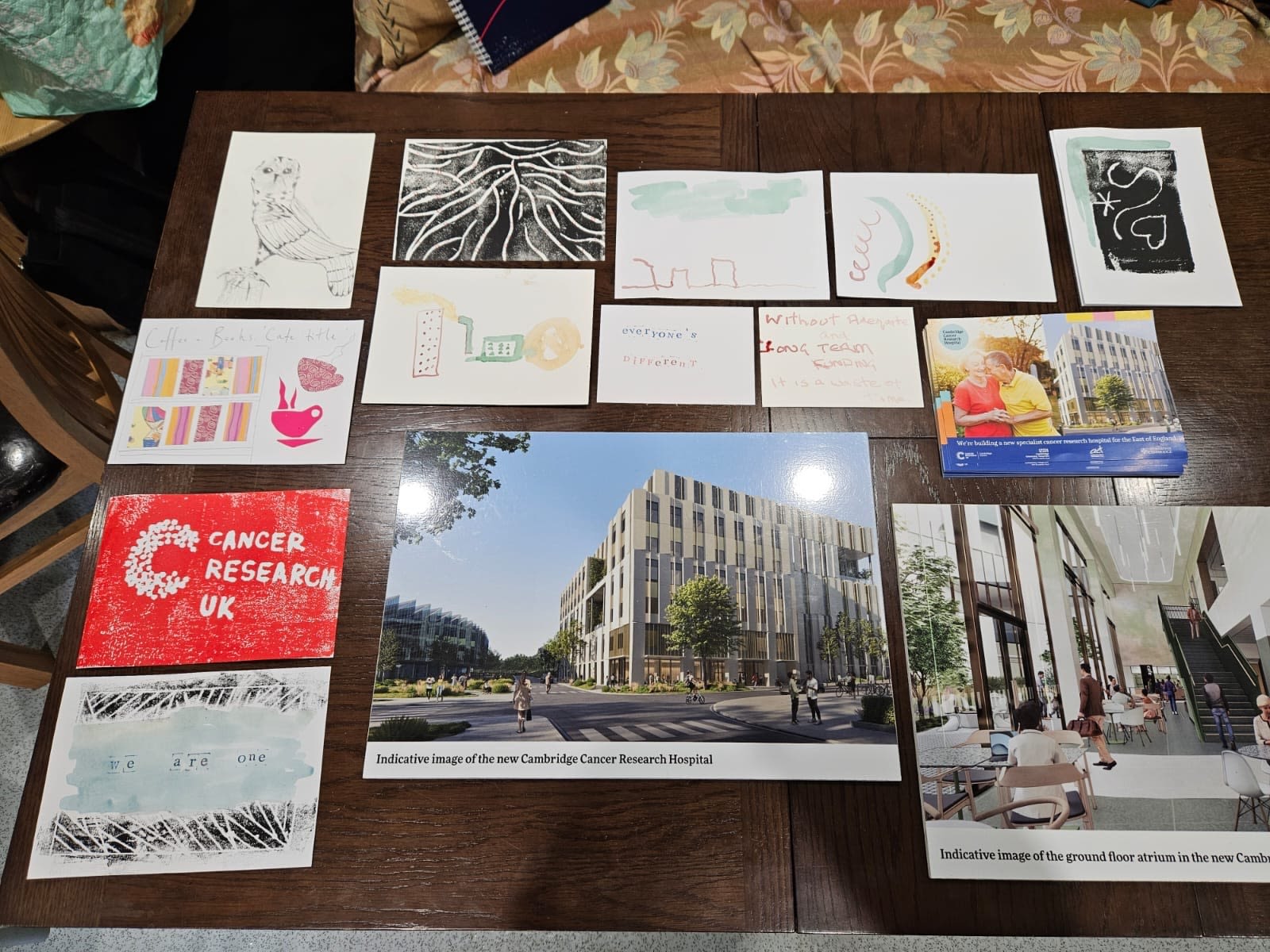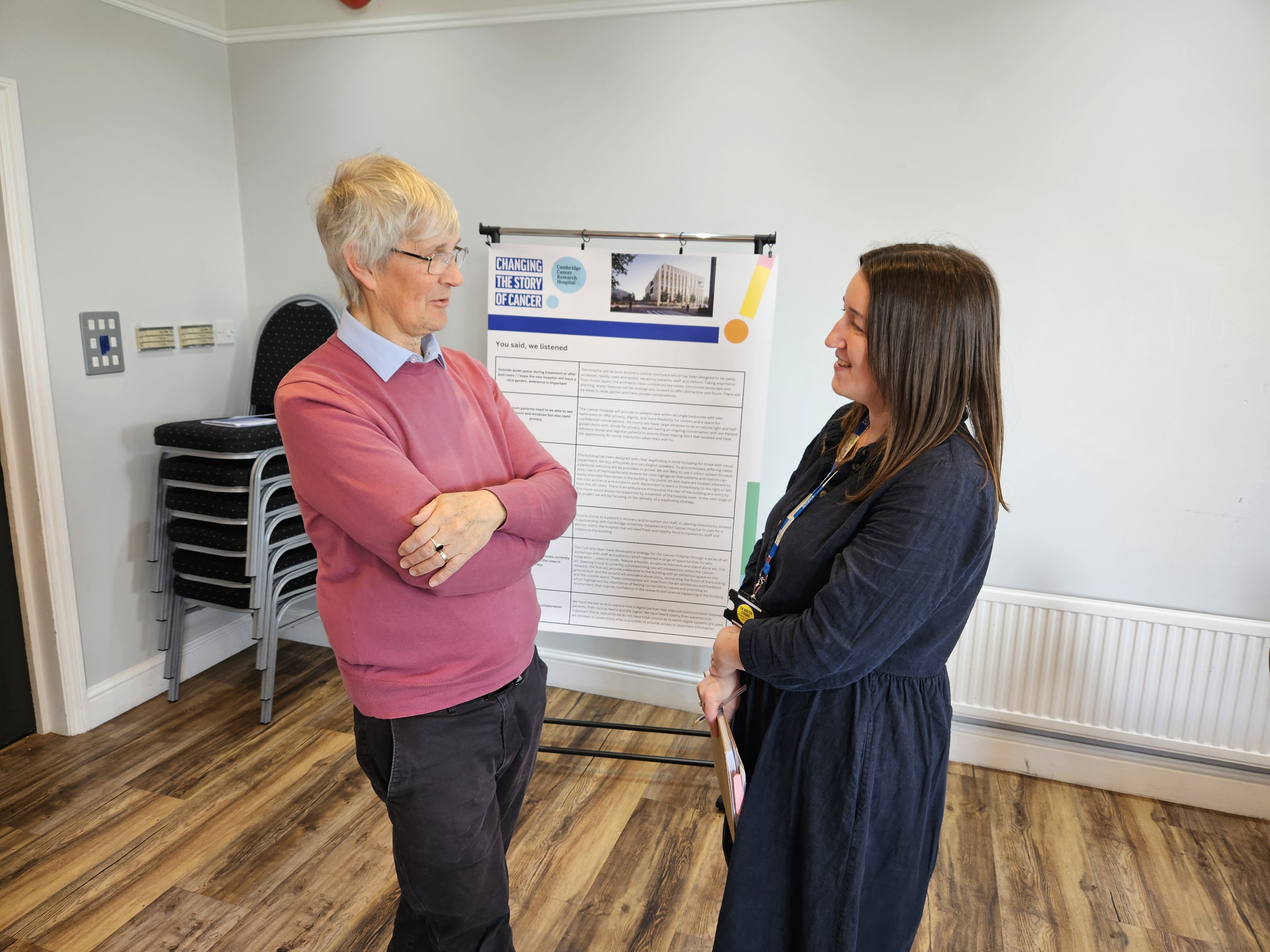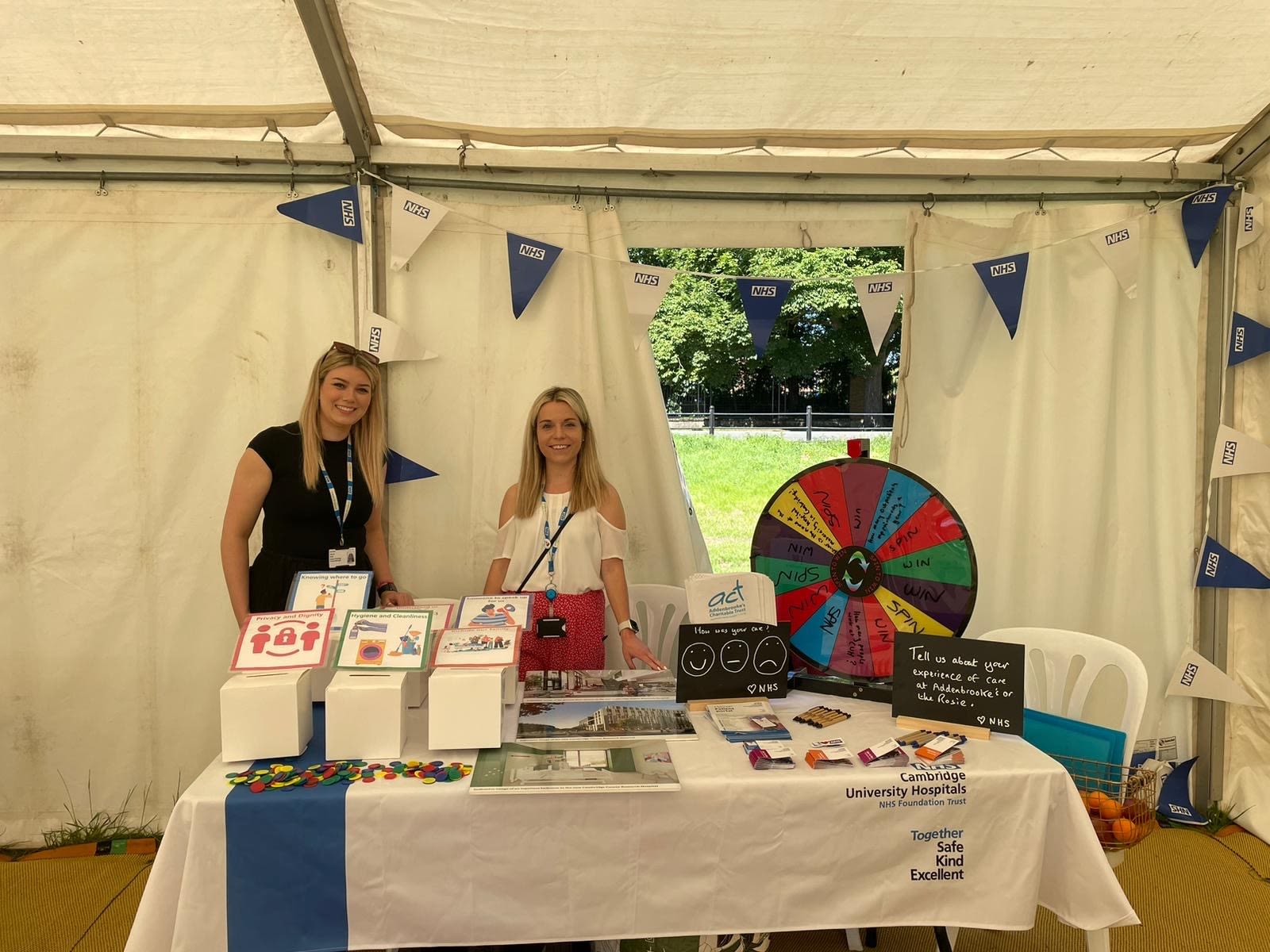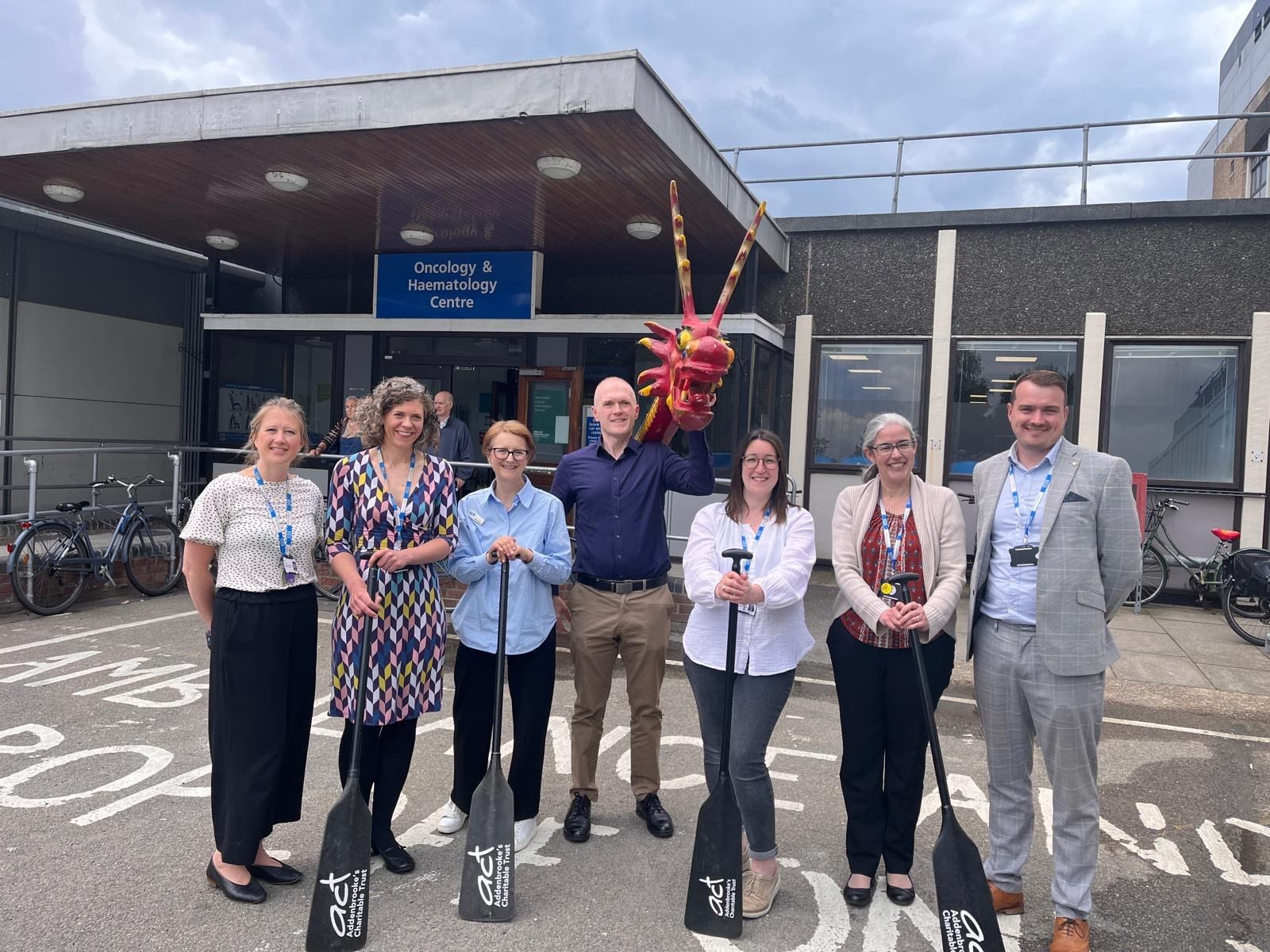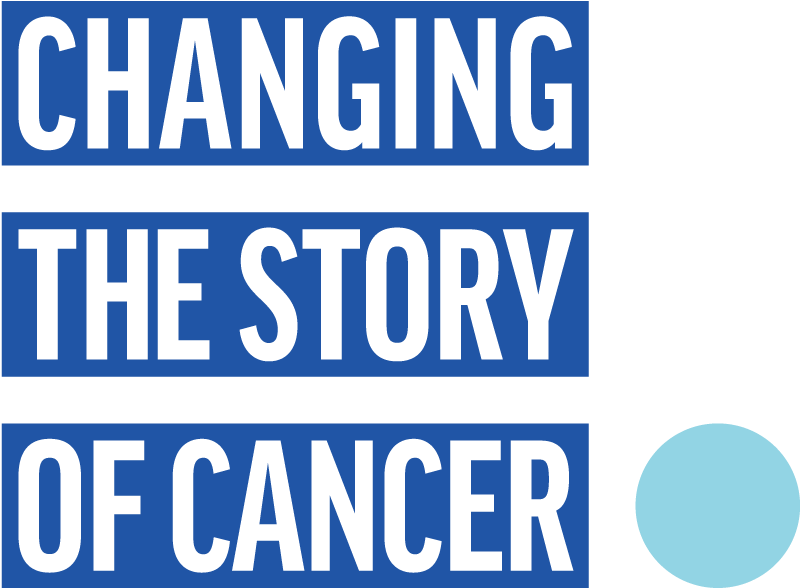CAMBRIDGE CANCER RESEARCH HOSPITAL NEWSLETTER
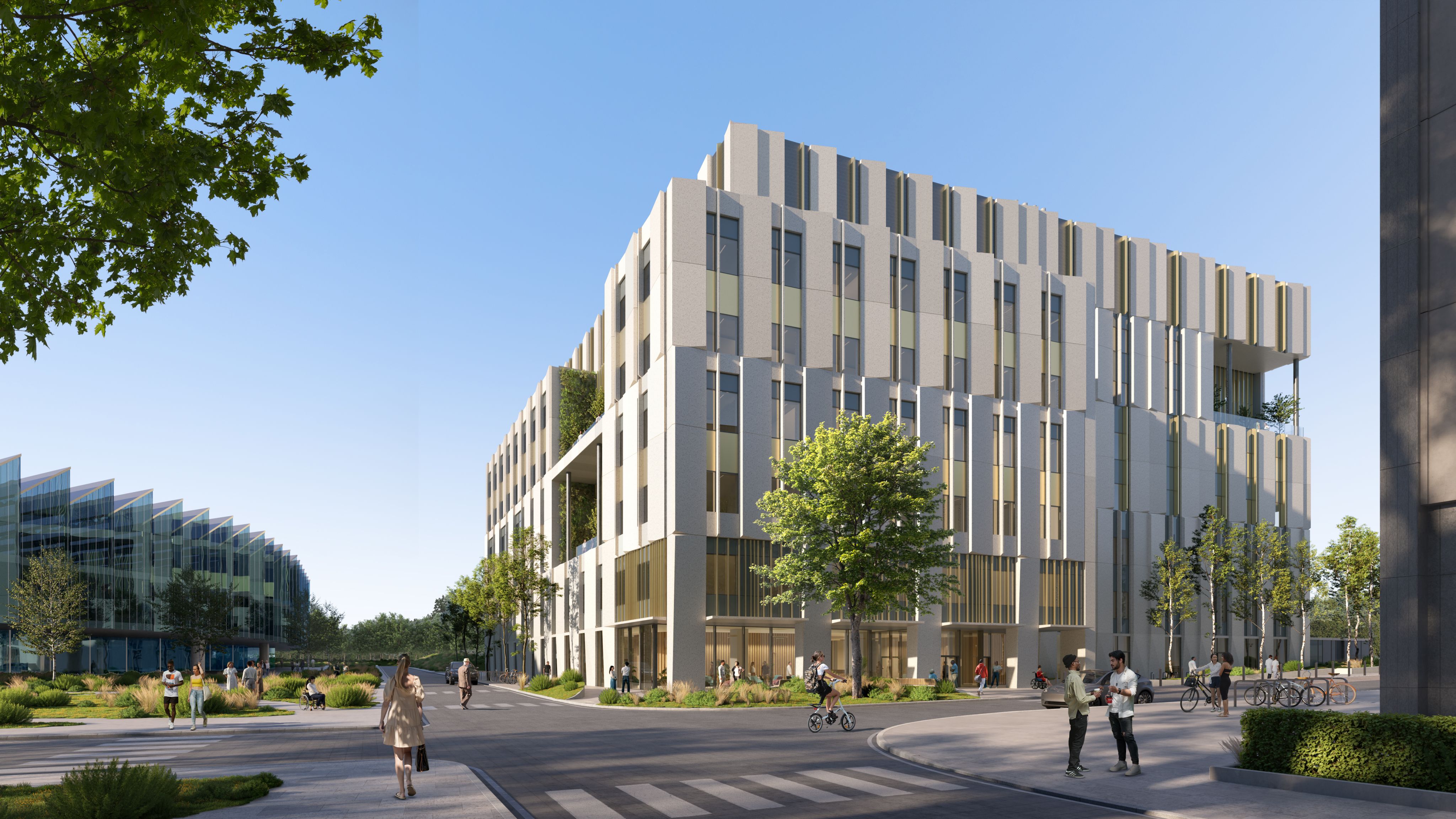
Welcome to our Cambridge Cancer Research Hospital newsletter!
An update from Nikki Murphy, Deputy Project Director for Cambridge Cancer Research Hospital
An update from Nikki Murphy, Deputy Project Director for Cambridge Cancer Research Hospital
I am delighted to introduce the summer edition of the Cambridge Cancer Research Hospital newsletter and share the progress we have made over the last few months.
In April, Cambridge City Council granted planning permission to build our specialist cancer research hospital for the East of England. This is subject to some conditions and a standard mandatory challenge period, but this marks an important milestone for the project and a big step towards our ambition to bring together for the first-time world-leading scientists from the University of Cambridge and the UK’s largest cancer research community within the walls of a new NHS hospital.
Following the completion of a new staff car park, the main site where the hospital will be built is now accessible and you will see activity onsite as enabling works commence. Our principal construction partner Laing O’Rourke were on site in June completing some initial surveys and, in the coming months, further work will continue including the installation of hoardings around the site, ground clearance and archaeological digs.
We have also started the next construction design stage- RIBA Stage 4 (Royal Institute of British Architects), known as the technical design stage. During this time, the project will evolve from being a concept to having final construction-ready plans, which is very exciting. Work in the coming months will focus on crucial elements of the project, such as our approach to wayfinding, the arts, and landscaping within and around the building, as well as re-confirming the designs we already have. Looking for ways to make the building as efficient as possible whilst delivering maximum value for money, remains a key priority. In parallel work also continues on the final stage of our business case, the Full Business Case (FBC), which is a key requirement in order to unlock government funding.
As with all of our work on the project to date, our plans are being developed together with our many stakeholders, with a particular focus on engaging with our staff and patients. Indeed, in this issue, we are celebrating the valuable impact patients continue to make, using their own lived experiences of cancer to ensure CCRH is a welcoming and comfortable environment to be in. Members of our Patient Advisory Group (PAG) have been working alongside the project team in the design, construction, communications, transformation and fundraising working groups since 2021. This means our PAG members have been and continue to be involved in decision-making processes and are a crucial part of the CCRH team. I am pleased to share that the group now has 25 active members from across the entire East of England region. You can read some examples of the decisions patients have helped us to make in the section below.
Meanwhile, we remain hugely grateful to all of our supporters, staff and patients, as we prepare to build this ground-breaking new facility that will transform the lives of the millions of people diagnosed with cancer. We hope you enjoy this edition and that you have a wonderful summer.
Indicative image of Cambridge Cancer Research Hospital's reception area
Indicative image of Cambridge Cancer Research Hospital's reception area
Indicative image of Cambridge Cancer Research Hospital's atrium
Indicative image of Cambridge Cancer Research Hospital's atrium
Indicative image of a treatment room in Cambridge Cancer Research Hospital
Indicative image of a treatment room in Cambridge Cancer Research Hospital
Indicative image of a research collaboration space in Cambridge Cancer Research Hospital
Indicative image of a research collaboration space in Cambridge Cancer Research Hospital
How patients are making a difference
Fiona Carey, Co-Chair of the CCRH Patient Advisory Group (PAG), shares the subjects they have covered in recent meetings about the new hospital.
Patients are involved in every part of the project; we are embedded in the seven workstreams, my co-chair and I sit on the Operational Delivery Board, we represent the project at events, and we regularly talk about the virtues of co-production at other NHS meetings. We welcome staff from the project, clinical and research teams to our PAG meetings, for them to scope patient opinion on a related piece of work. In 2023, we talked about catering, digital opportunities, research, commercial, arts and landscaping and innovation in the new hospital. This year, we have so far tackled inpatient admissions, fundraising, wayfinding and organisational development. Our conversations are always interesting, and sometimes surprising, but they always generate rich and valuable output which is much valued by the project team.
I am pleased to say our input has directly shaped the following decisions or conversations:
- the design of the urology treatment rooms to preserve patient dignity
- whether to incorporate a Macmillan support facility
- how the CCRH outpatient pharmacy should operate
- how easy is it to find their way around the building for patients with varying needs
- how people can sense, on entering the hospital, that world-class research is happening here
As you can see, we are making a clear difference. After more than 20 years as a cancer patient, it means a great deal to be part of this project.
Members of CCRH PAG with Elaine Chapman, Lead Advisory Nurse and Co-production Lead
Members of CCRH PAG with Elaine Chapman, Lead Advisory Nurse and Co-production Lead
Fiona Carey, Co-Chair of the CCRH Patient Advisory Group (PAG)
Fiona Carey, Co-Chair of the CCRH Patient Advisory Group (PAG)
"Patients are making a real difference here, we are listened to. We see things staff don't see, we know things staff don't know. We’ve got a really good co-production model, and the more patients and carers who join us, the better. "
Members of the CCRH Patient Advisory Group (PAG)
Members of the CCRH Patient Advisory Group (PAG)
"It's so exciting to be involved. Future staff and patients will have an amazing building to be working in and treated in. It feels like a legacy project; we're bringing the lab bench to the patient bedside."
Jomar's story
Clinical Nurse Specialist, Jomar Maxion, looks forward to witnessing “ground-breaking discoveries in cancer treatment” at the new hospital.
To mark Cancer Clinical Nurse Specialist (CNS) Day earlier this year, Jomar shared the story of his career so far, and his hopes for Cambridge Cancer Research Hospital.
Jomar joined Cambridge University Hospitals in 2019, as a staff nurse on D9, the oncology ward. Last year he started his current role as a lung cancer CNS. In his story, he writes about the “pivotal moment” of meeting patients when they receive a cancer diagnosis.
"From that initial encounter, I follow them through every stage of their journey, from diagnostic tests to treatment decisions. We walk with our patients through the most difficult phases of their lives. During each clinic visit, we are granted a remarkable privilege: we become one of their greatest supporters."
Jomar Maxion, Lung Cancer Nurse Specialist
Jomar Maxion, Lung Cancer Nurse Specialist
Being able to continue this care in a building which is dedicated to the unique needs of cancer patients is really important to Jomar.
"This hospital represents not just a place of healing, but also a hub of innovation and progress in the fight against cancer."
Changing the story of cancer
Why are researchers studying the very earliest stages of cancer? How will artificial intelligence change how we understand and treat cancer? Which chance discovery in a Cambridge lab led to a revolutionary new cancer drug? And how will the new Cambridge Cancer Research Hospital change the story of cancer?
These are some of the questions at the heart of a new campaign launched this week by the University of Cambridge in partnership with Cambridge University Hospitals (CUH) NHS Foundation Trust and the Cancer Research UK Cambridge Centre.
The campaign starts with an exclusive insight into the public’s concerns around cancer and views on cancer research.
There is also a new online cancer hub, with a range of articles including how the University is helping to end death and disease caused by cancer, the importance of early detection, making treatments more effective through personalised, precision approaches, and how patients are involved in this work.
Professor Rebecca Fitzgerald OBE, Director of the Early Cancer Institute, University of Cambridge, and Honorary Consultant in Cancer Medicine at Addenbrooke’s Hospital
Professor Rebecca Fitzgerald OBE, Director of the Early Cancer Institute, University of Cambridge, and Honorary Consultant in Cancer Medicine at Addenbrooke’s Hospital
Professor Jean Abraham, who co-leads the Precision Breast Cancer Institute, which will move into Cambridge Cancer Research Hospital
Professor Jean Abraham, who co-leads the Precision Breast Cancer Institute, which will move into Cambridge Cancer Research Hospital
Throughout July, more content will be published including researcher profiles, the story behind the transformative cancer drug olaparib and insights into artificial intelligence in cancer research and care.
Visit the University's cancer hub, which also includes a spotlight on Cambridge Cancer Research Hospital.
Look out, too, for more content from the wider Cambridge cancer community on social media by following #ChangingTheStoryOfCancer – and join us by sharing your own stories, too.
Regional engagement with patients and members of the public
We are continuing to deliver an ambitious programme of engagement activities with staff, patients and members of the public. Within this programme, we are seeking the views of population groups who have unequal access to healthcare, to do what we can within the plans and development of Cambridge Cancer Research Hospital, to improve their care and outcomes.
Miniature model of Cambridge Cancer Research Hospital
Miniature model of Cambridge Cancer Research Hospital
In April, we visited Emmaus, a homelessness charity in Cambridge, to learn from people's lived experience of accessing healthcare. The people we spoke to gave us valuable feedback, which will now go straight into our thinking about the facilities and workforce in CCRH.
Feedback from Emmaus Cambridge
Feedback from Emmaus Cambridge
We also had the opportunity to deliver a 'You Said, We Did' feedback session to patients who had experience of cancer care in Peterborough, Hinchingbrooke and Addenbrooke's at the Hunts Community Cancer Network (HCCN) Patient Conference. It was important we reported back how we've considered and integrated the feedback we received after their last conference in November.
Presenting a 'You Said We Did' feedback session at the Hunts Community Cancer Network (HCCN) Patient Conference
Presenting a 'You Said We Did' feedback session at the Hunts Community Cancer Network (HCCN) Patient Conference
Additionally, we attended an oncology research event on the Cambridge Biomedical Campus where we engaged with staff, patients and their families on how we will continue to provide specialist care to young people in our Teenage and Young Adult (TYA) ward in the new hospital.
Midsummer Fair
Midsummer Fair
And finally, in June, we took part the first healthcare marquee at Midsummer Fair in Cambridge. It was an opportunity to hear from members of the Gypsy, Roma and Traveller communities about their experiences of attending medical appointments, hospital and learning what's important to them and their families for accessing healthcare.
Events
The Cambridge Cancer Research Hospital team and the Cancer Research UK Cambridge Centre will be at a number of public events in the coming months. If you're interested in finding out more or registering to attend, please click on the links below:
26th July - World Head and Neck Cancer Day. The CRUK Cambridge Centre team will be hosting an awareness-raising pop-up stall in Addenbrooke's Outpatients.
7th September - Cambridge Dragon Boat Festival - We are delighted to share that the CCRH project team have signed up to take part in this year’s Cambridge Dragon Boat Festival on the River Cam at Fen Ditton. All funds raised from the event this year via Addenbrooke’s Charitable Trust will be supporting Cambridge Cancer Research Hospital.
If you would like to support the team with fundraising for CCRH, please visit the Just Giving Page.
The CCRH project team taking part in Cambridge's Dragon Boat Festival
The CCRH project team taking part in Cambridge's Dragon Boat Festival
11th September - Save the date for our Goodbye Breasts! exhibition as part of the Open Cambridge 2024.
27th September- Experimental Cancer Medicine Demystified at the CRUK Cambridge Institute. Click here to attend in-person, or click here to attend online.
7th November- Cambridge Symposium on Oesophageal Cancer at the CRUK Cambridge Institute.
Latest cancer news from Addenbrooke's, the University of Cambridge and the CRUK Cambridge Centre
Using AI to detect stomach cancer
An Addenbrooke’s consultant who uses advanced techniques to detect cancer earlier, and prevent life-changing surgery later, has won a grant to boost his work.
£9.2m boost for next generation of Cambridge cancer experts
Cancer Research UK has announced £9.2m for Cambridge to train the next generation of doctors and scientists to bring new and better cancer treatments to patients faster.
Professor Richard Gilbertson appointed as next Master of Caius College
CCRH Research Lead Professor Gilbertson has been chosen as the next Master of Gonville & Caius College.
Early Cancer Institute receives landmark donation The Early Cancer Institute has received a landmark £11m donation to support its vital work in the fight against cancer.
The Lancet Commission on Breast Cancer publishes recommendations for change
Many people with breast cancer are ‘systematically left behind’, say researchers in the Lancet Commission led by Professor Charlotte Coles.
Podcast: Surgery and clinical research in cancer
Listen and learn about improving surgery for brain and kidney cancer patients, how to identify cancer as quickly as possible through screening, and what it means to be both a cancer surgeon and clinical researcher.
Find out more and join us
Patients and their families are involved in the CCRH programme in two groups; the Patient Network and the Patient Advisory Group (PAG). For more information on joining these groups, please visit the CCRH website.
Follow us on Twitter and Facebook for news about the programme and visit our website for more information.
To unsubscribe, email hello@cambridgecancer.org.uk

